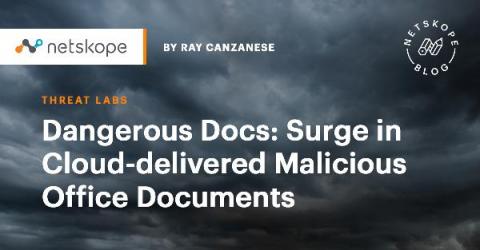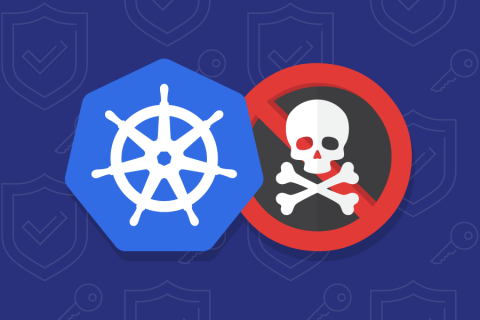Security | Threat Detection | Cyberattacks | DevSecOps | Compliance
Security
Dangerous Docs: Surge in Cloud-delivered Malicious Office Documents
The global pandemic caused an abrupt shift to remote work among enterprise knowledge workers, which in turn resulted in an increase in risky behavior. Attackers immediately tried to capitalize on the pandemic, with COVID-19-themed phishing emails, scams, and Trojans. At the same time, techniques used in more sophisticated cyberattacks continued to evolve.
Install Veracode for VS Code to Run Greenlight Scans
Netwrix Auditor for Azure AD - Overview
Netwrix Auditor for Windows Server - Overview
Fix now: High risk vulnerabilities at large, September 29th
Since the global pandemic we’ve been writing about the latest CVEs to look out for in our risk based vulnerability management blog. As we head into the Autumn and the nights begin to draw in, threat actors continue to exploit vulnerabilities and cause disruption. Let’s take a look at some that have raised their profile in the last couple of weeks
Kubernetes Q3-2020: Threats, Exploits and TTPs
Kubernetes has become the world’s most popular container orchestration system and is taking the enterprise ecosystem by storm. At this disruptive moment it’s useful to look back and review the security threats that have evolved in this dynamic landscape. Identifying these threats and exploits and being a proactive learner may save you a lot of time and effort…as well as help you retain your reputation in the long run.
What makes ARMO customers immune - by design - against vulnerabilities like the recently discovered CVE-2020-14386?
CVE-2020-14386 is yet another severe vulnerability that was recently discovered in the Linux kernel. It reminds us that the fight against vulnerabilities is not over. This particular one allows a regular application to escalate its privileges and gain root access to the machine. Indeed, it sounds scary.
Find the Correct MSSP or Build an Efficient SOC? (Part 2)
Many organizations don’t rely on outsourced security solutions such as MSSP. Rather, they prefer building their own SOC to combat nefarious cybersecurity threats and attacks. However, it is vital to know how an effective SOC is built and what should be its essential security ingredients.
Redscan Labs releases Zerologon detection tool
Zerologon (CVE-2020-1472) is a critical vulnerability in the Windows Server Netlogon process authentication process. Following our recent Security Advisory, immediate patching of the vulnerability is strongly advised. To help determine whether your organisation has been compromised as a result of an attacker exploiting the vulnerability (even prior to a patch being installed), Redscan Labs has developed a Zerologon detection tool.











